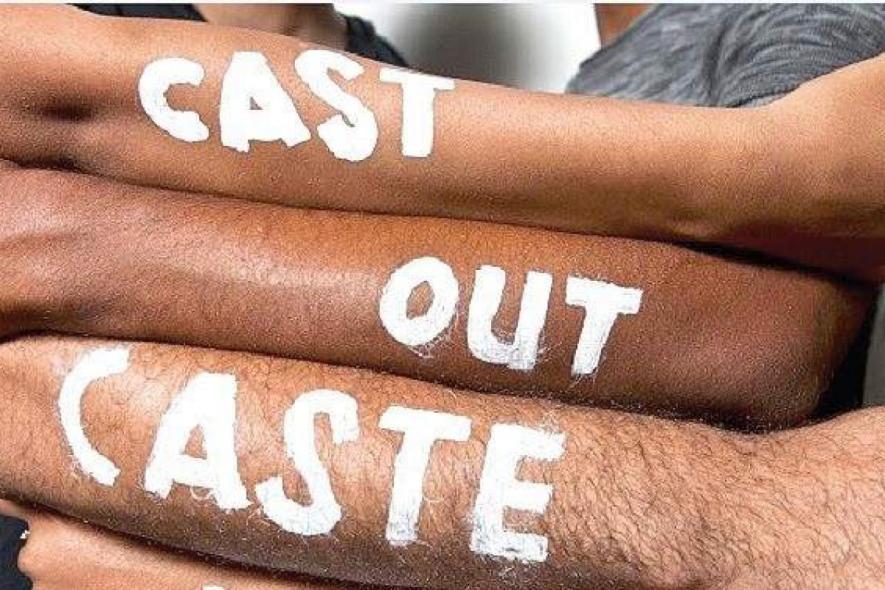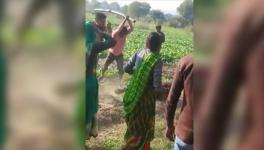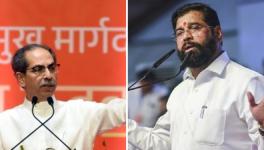Dalit Atrocities: In Pursuit of Justice Amid Lockdown

On the midnight of June 18, a 30-year old Dalit woman walked into a police station of a small town in Maharashtra. Anxious, distressed, but determined; she wanted to file a rape complaint against her lawyer. According to the first information report (FIR) she filed at the police station in the district of Beed, the physical abuse that went on till December 2019 had begun in January 2017. She had met the lawyer three months before that.
In September 2016, the lawyer had been appointed as the woman’s advocate via the state's legal services authority because she had no money. She had been fighting an alimony case against her husband, who, she said, abandoned her in 2014.
According to the FIR, the lawyer asked her for sexual favours in return for fighting her case. “When I asked him to behave properly, he said it is considered an honour among them to have Mahar women as their keeps,” the FIR read. “Five-six days later, he asked me to come home for case-related work, where he threatened to kill my daughter and me if I didn’t have intercourse with him. He even threatened to not fight my case. Issuing these threats, he had intercourse with me against my wishes on several occasions between January 2017 and December 2019.”
The lawyer representing the woman said it has always been difficult for Dalits to fight atrocity cases in India. But, he added, the coronavirus-induced lockdown has ensured the wheels of justice move even slower. “The district court of Beed is only open for three hours instead of the usual six or seven,” he said. “The court can’t get much work done in as much time. So we keep getting adjournments. The police are also overburdened with lockdown bandobast and coronavirus-related duties. That leaves them with little time to investigate cases.”
While lockdown has slowed everything down, the atrocity cases that moved slowly even under normal circumstances would be even more affected. The MHA report of 2017-18 noted that the conviction rate under SC/ST (Prevention of Atrocities Act) stood at merely 16.3%.
Ever since the outbreak of the novel coronavirus in India at around mid-March, Rahul Dambale, a Pune-based Dalit activist with Republican Yuva Morcha, said he has recorded over 50 serious cases of atrocities against Dalits and Adivasis, and six of them have been murders. “These are the cases only I have been following,” he said.
Dambale said the rate of atrocities is about as much as it has always been. “But because of the lockdown, it has been tough to mobilise protests and pressure the police or administration to do an impartial probe,” he said. “On 15 June, we held a protest and sent over 29,000 emails to Chief Minister Uddhav Thackeray. But it is not the same as large-scale demonstrations. The perpetrators know that well.”
Within two and a half hours of the Dalit woman’s complaint, there was another FIR filed at the same police station. The lawyer’s wife accused three men and the Dalit woman of attempting to gang-rape her. “Realising my husband is not home, one of the men held my hand and took me into the kitchen. But my son and I started shouting, and the neighbours arrived, which is when they had to leave,” the FIR read.
The three men named in her FIR are people who helped the Dalit woman file her complaint. One of them was a local journalist. “This counter FIR is to harass us for the help we extended to the woman,” he said.
The lawyer accused of raping the Dalit woman has refuted the allegations.
However, the woman said, he is trying to strike a deal with her. “He is offering to withdraw the complaint if I withdraw mine,” she said. “I am being pressured. He is an influential man in the town.”
Also read: No Headway in Decongestion of Maharashtra Prisons, Despite SC Directive
He belongs to the Vanzari community, which is classified as a Nomadic Tribe in Maharashtra. In the rest of the state, the community may not be as influential, but in Beed, it enjoys significant social capital, for the late BJP stalwart Gopinath Mundhe, who hailed from Beed, belonged to the same community. After him, Pankaja and Dhananjay Mundhe’s rise has added to the influence the community wields in Beed, making it an uphill task for the woman to get justice.
Most of the Dalit and Adivasi victims, added Dambale, don’t just face societal discrimination, but they struggle economically as well. “The lockdown has affected the economy at large, but it has impacted Dalits and Adivasis disproportionately,” he said. “At a time like this, should they be worried about getting back on their feet or should they spend their time and limited resources in seeking justice?”
In the case of Dhiraj Bansod, his quest for justice for his elder brother Arvind, 32, has coincided with recovering the losses the family suffered during the lockdown. “We had to sell our cotton crop at half the market price to the middleman because of the lockdown,” said Dhiraj, 28. “We were hoping to recover those losses in the upcoming Kharif season.
Just when they had been preparing for the Kharif season, Dhiraj lost Arvind under mysterious circumstances on May 29.
Arvind, a social activist associated with Vanchit Bahujan Aghadi, allegedly died by suicide in Nagpur’s Thadipawani town after being brutally beaten up by men belonging to the Kunbi caste. The main accused, Mithilesh alias Mayuresh Umarkar, is the son of Bandopant Umarkar, district vice-president of the Nationalist Congress Party, the party of home minister of Maharashtra, Anil Deshmukh.
The FIR, filed at Jalalkheda police station on May 29 by Arvind’s second brother, Kishor, accused Mayuresh of abetting Arvind’s suicide. “On May 27, Arvind was abused and threatened with his life, when he said no need for that and drank the pesticide he had bought for his crops,” the FIR read. “The argument began when our friend Gajanan Raut, who was with Arvind, took a photograph of Mayuresh’s gas agency. Mayuresh and his friends abused him and started beating him up for doing that, which is when Arvind stepped in. He was badly beaten up and abused.” Gajanan had reportedly taken the photograph to note the contact numbers on the board.
However, on June 22, Dhiraj filed an affidavit in the special court claiming that the police did not write the FIR the way Kishor had narrated the incident. “Kishor is uneducated and he can’t read or write,” the affidavit read.
In the 20-point affidavit, Dhiraj explained the sequence of events before Arvind’s death, alleging it was murder. “Arvind used to help out needy people in our villages with free gas cylinders,” the affidavit read. “The accused runs his own gas agency. About 8-9 months back, he had threatened Arvind by saying, ‘Why are you destroying my business by helping these poor people with free cylinders? Leave this job or I will not spare you’.”
On May 27, Dhiraj’s affidavit said that Gajanan bumped into him and said Arvind and Mayuresh got into a serious fight, following which Mayuresh and his friends forced pesticides down his throat. While they took Arvind to the Medical College, Nagpur, “Arvind was conscious in the ambulance,” the affidavit read. “He told us that the accused and his friends forced him to drink the poison.”
Arvind was conscious for six hours after being admitted at around 5 PM, the affidavit added, but the police arrived to take his statement only after he fell unconscious. “His health worsened over the next day, and he died on the morning of May 29,” Dhiraj said. “The same day, Kishor filed the FIR, which was wrongly noted down.”
Also read: Cisco Case Shows Indians Still Take Caste Where they Go
The next day, Dhiraj recorded his statement to the police but, he said, the police had started investigating along the lines of suicide.
Nagesh Jadhav, DySP, Jalalkheda police station, denied any political pressure or an attempt to protect the accused. “The investigation is on,” he said. “We have arrested two accused. Mayuresh has been granted bail by the court. We are investigating the case based on the FIR filed by Arvind’s own brother. He is the complainant, not the police. We are only going by what the complainants have told us.”
The delay in filing the FIR, and ignoring Dhiraj’s allegations proves the police are trying to protect Mayuresh, said Akash Moon, the lawyer representing Arvind’s family. “The police hadn’t even included the atrocity act initially,” he said. “It was added on June 8 after an uproar in Nagpur. Because of that, the main accused is out on bail. Also, with coronavirus, the authorities are mindful of not crowding prisons, which helps the accused.”
At a time when Dhiraj hoped to recover the losses the family incurred during the lockdown, his time and effort have been divided between the case and farming. “Farmers suffered a lot during the lockdown,” he said. “I have borrowed money to buy a bag of cotton seeds to sow in our farmland. My brother used to take the lead all this while. He was well educated, and we looked up to him. Now even when I am in the farmland, I am thinking of the case.”
Priyadarshi Telang, convener of Dalit Adivasi Adhikar Andolan, said the pandemic has become an excuse to delay and deny justice to the atrocity victims. “Longer the case goes on, thinner the chances of getting justice,” he said. “Especially when the accused is politically influential, it leads to evidence tampering and witnesses turning hostile if the case drags on. The law is strong, but we have not been able to create a society free of the caste system. And the monitoring system fails because it consists of people coming from the same society.”
That is exactly what happened with Balasaheb Gaikwad, 47, a farm labourer in the district of Aurangabad. Gaikwad’s son, Amol, 22, a Dalit, had eloped with his neighbour, Pooja, belonging to the Mali caste. On March 13, Sagar Devkar, Pooja’s brother, landed at Gaikwad’s doorstep in the village of Mauje Lakhe and issued a threat.
The same night, Gaikwad approached the local police station at his Vaijapur taluka, and spelt out the threat in no uncertain terms. “Sagar Devkar came to our house and said his sister has left the house,” the complaint read. “He said he would finish my entire family if my son and his sister do not come back by morning.”
The complaint further read, “We are labourers and we come from a poor family. They are well-off farmers. They can do anything.”
He was right. The following night, on March 14 at around 8 pm, Sagar and his family landed up at Gaikwad’s doorstep with a sword. They did not find Amol; so they allegedly beheaded his 18-year old brother, Bhimrao. In the attack, Gaikwad and his wife Alka, 41, were seriously injured too. “Had the police taken proactive measures, my son would have been alive today,” said Gaikwad.
Investigating Officer, Sandeep Gavit, said there were allegations of lack of proactive action on part of the officer in charge, and that is why the case was transferred to him. “We have since then sincerely probed the case,” he said. “Three of the four accused are in jail. We filed the chargesheet within 60 days.”
But Gaikwad’s family remains ruptured. The lockdown had already been imposed by the time the husband and wife got discharged. There was no work on offer, and their injuries would not let them work either in the near future. They paid the hospital bills through the compensation and donations they received after the incident. They have not been living in their home since the incident either. They have moved to his sister’s place in another village. “We felt unsafe without our kids,” he said.
His younger son died on March 14. And he has seen his elder son just once since then. Amol and Pooja were traced in Mumbai about 15 days after the incident. Amidst the lockdown, they were brought back to Vaijapur, where they got married at the police station. At the time, Amol’s parents were in the hospital recovering from the injuries. He met them amidst police protection in the hospital and requested the police to drop them back to Mumbai.
Throughout lockdown, Amol and Pooja have been in Mumbai with someone the family has known for a while. Gaikwad’s family friend, Vishwas Bagul, who has spoken to them a few times, said they have not managed to find any work because of the coronavirus. “Everything in Mumbai is shut, and people are losing jobs,” he said. “He has survived on some money we sent him from here.”
But that hasn’t been easy either. “Since lockdown, we have also not been able to find much labour work,” said Gaikwad. “This has added to our financial stress. As labourers, we had little to fall back on when everything shut down due to the coronavirus. Some of our friends have helped us in these times.”
But Gaikwad prefers that over Amol coming back to the village. “He will be safe there,” he said. “But we also wonder when we will see him again. He hasn’t kept a mobile phone. He calls us infrequently so we know he is alive.”
Also read: The Scent of Power: A Timeline of BJP’s Power Grab in States
Get the latest reports & analysis with people's perspective on Protests, movements & deep analytical videos, discussions of the current affairs in your Telegram app. Subscribe to NewsClick's Telegram channel & get Real-Time updates on stories, as they get published on our website.
























